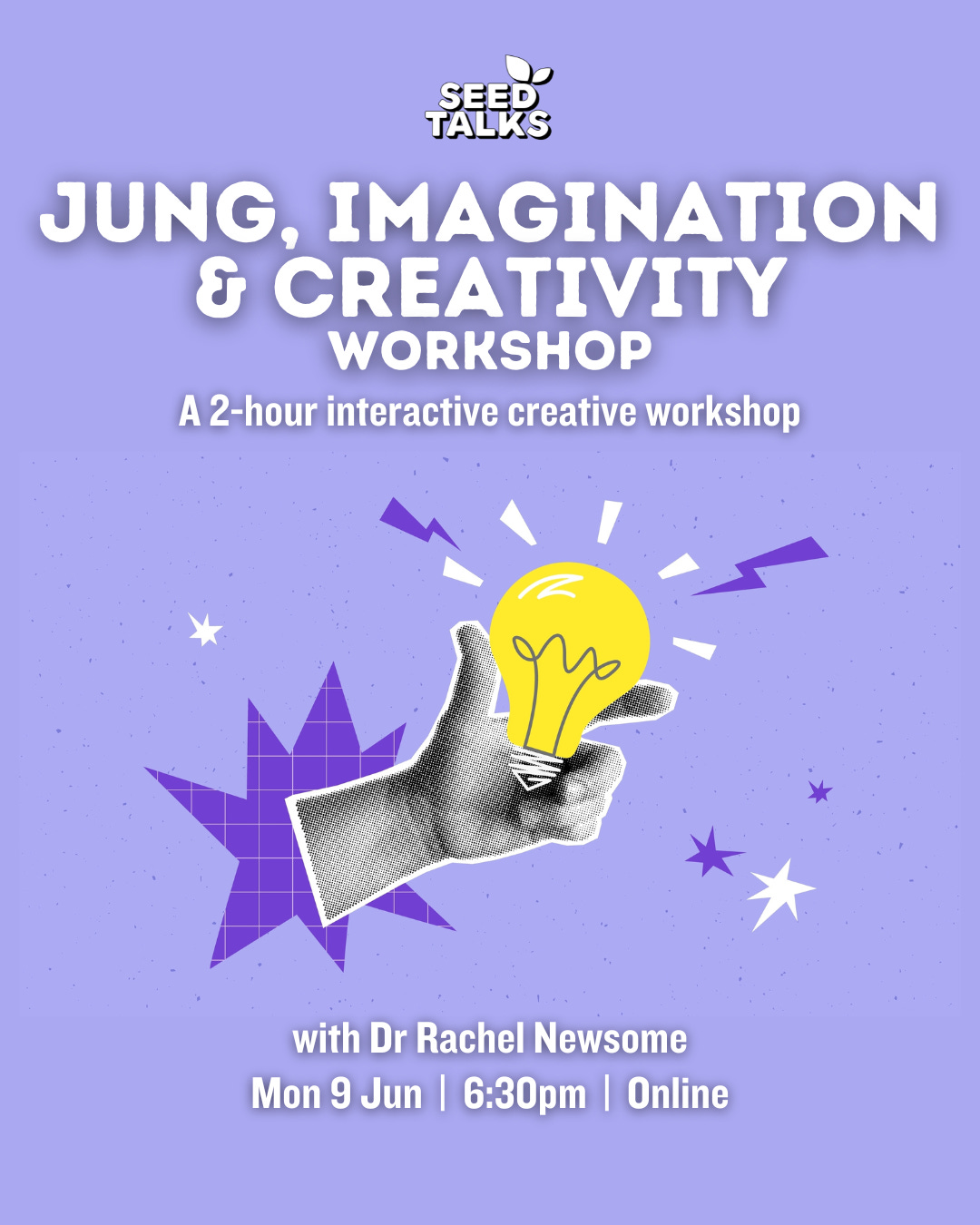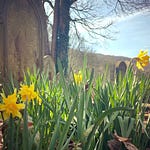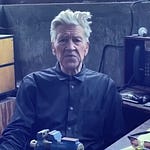‘Your visions will become clear only when you can look into your own heart. Who looks outside, dreams; who looks inside, awakes’ ~ Carl Jung
Visionary now
Over the last six months I’ve found myself, mic in hand, squinting in great orbs of halogen light on the stages of community theatres, clubs and performance spaces up and down the U.K. from London and Milton Keynes all the way up to Edinburgh and Aberdeen, addressing sold out events at the invitation of innovative events organisation Seed Talks. Before each talk, I’ve been making a habit of hovering at the edges listening to the collective heartbeat of people taking their seats while watching everyone from teenagers orbiting their mums to people well into old age, balanced between a helping pair of hands, stream into the space.
At these talks I’ve spoken with teachers and students, artists and engineers, therapists and retired policemen, amongst others. I’d love to say all these folk, many of whom arrive hugging a notebook, have come to see me. But I’m simply the translator, the creative interpreter. The real star of the show died this month 64 years ago in June 1961. The real star and person everyone has turned up to hear about mid-way into the second decade of the 21st century is the visionary, pipe-smoking Swiss depth psychologist Carl Gustav Jung.
It’s Jung we have to thank for concepts such as the personality type, the complex, the collective unconscious, the archetypes and individuation. A deep thinker and intuitive, Jung arrived at these ideas through his exploration of dreams and his extensive studies of Christianity, Buddhism, Hinduism and Taoism alongside astrology, kundalini yoga, medieval alchemy, world myths and fairy tales.
Not only that but Jung also took a keen interest in quantum physics and collaborated with the Nobel prize winning physicist Wolfgang Pauli to develop the concept of synchronicity, or meaningful coincidence. Nothing, if not prolific, Jung left behind twenty volumes of collected works, alongside books aimed at the general reader and a personal illustrated dream diary, which include his ‘active imagination’ conversations with the images he encountered on a nightly basis that show us how Jung was not only a scientist but also a mystic.
Despite Jung’s popularity amongst the general public in his own lifetime, his concepts were and remain controversial in the spheres of psychiatry and the academic humanities and so it wouldn’t have been at all surprising if Jung and his ideas had quietly slipped into obscurity in the years following his death. But, if anything, the opposite seems to be true. Far from being forgotten, there’s a resurgence of interest in the esoteric ideas of this Swiss psychologist from the last century that says something deeply revealing about both Jung and the times we’re living in now. As the sold-out talks I’ve been giving, alongside the growing interest in shadow work and the popularity of podcasts like This Jungian Life (a personal favourite) all suggest.
Postcards from the edge
Prior to my late thirties when I accidentally/synchronously (take your pick) found myself in Jungian therapy whilst going through a mid-life crisis, I’d only been vaguely aware of Carl Jung. Back then I saw Jung as mysterious and wizard-like, a modern-day Merlin, who didn’t seem to belong in the rational-deterministic post-modern era I’d come of age in with its routine dismissal of anything pertaining to the religious, spiritual and god as mere ‘delusion’.
But it was precisely for this reason that I found myself intrigued by this eccentric figure who appeared to be swimming the other way. Perhaps this was because, like Jung, I too had been brought up in a Christian household which left me with the sense – despite my experience of the Church as an institution as problematic - that ‘there are more things in heaven and earth, Horatio’, as that other great mystic said, than we can ever really fully grasp or know.
This sense was reinforced to me by the recurring nightmare where I was trapped in a house with my mother from which I would frequently wake in tears in and around the time I was in Jungian therapy. Although I’d left home years ago and barely saw my mother, I’ll never forget the sensation of feeling physically shaken when this postcard from the far-flung edges of my psyche, written in the language of metaphor and symbol, finally brought home to me all the ways I was going about my life as if I was still trapped in that house. News, perhaps not to those I was close with but news, certainly, to me.
It was this experience of Jungian therapy that led me to set off on a deep journey in. Along the way, I embarked on a PhD exploring how Jungian psychology can be applied to writing through my own creative practice. That entire seven-year period of my life was like swimming underwater, mostly in the dark, brushing against the tough hides of terrifying sea monsters while glimpsing bright flashes of gold hidden inside all the sunken wrecks I hadn’t previously known even existed. While at the end of this night sea journey, far from being done with all things Carl Jung, I felt like I was just getting started.
The starry connection
According to Jung, it’s by reflecting on our inner life that we discover who we really are beneath our self-constructed concepts and masks. He believed the greatest crisis facing humankind was that we’ve become severed from our roots in ancient wisdom and the realer-than-real realm of our dreams. Jung does not hold back when he says;
'We have plunged down a cataract of progress which sweeps us on into the future with ever wilder violence the further it takes us from our roots... It is precisely this loss of connection with the past, our uprootedness which has given rise to the ‘discontents’ of civilization… we rush impetuously into novelty, driven by a mounting sense of insufficiency, distraction & restlessness’
Jung wrote these words in his autobiography Memories, Dreams, Reflections, published just after his death in 1962. But they could have been written yesterday about the forever wars and the climate emergency, the rise of the far right and the erosion of democracy, the dangers of social media and artificial intelligence and the global recession and mental health crisis now.
Yet, if there’s something of the fiery Biblical prophet in Jung, there’s also the ghostly half smile of the equanimous yogi. One of the questions I regularly get asked at the talks I’ve been giving is whether Jung ever took psychedelics? My answer is no, Jung didn’t take psychedelics, Jung was psychedelic, in that he saw all the way through the rational to the numinous with the inner ‘psychoactive substances’ of deep imagination and the symbols of the creative unconscious which we meet in our fantasies and dreams and in the myths and art of all ages.
Jung’s great gift to humankind, in my view, is that he places the psyche – which is the Greek word for soul - at the centre of how we discover the face we had before we were born, as the Zen masters put it, liberated from the dogma of rule-based ideologies. A move that was radical then and remains radical now.
One of the things I’m learning from giving these talks is that many of us – perhaps more than we think - are searching for something to make sense of the wild, crazy world we find ourselves in beyond the daily grind of end-times capitalism. But at the same time, we often don’t know where to start because we’re no longer taught how to journey with our inner psychoactives. Although the culture seems more full of codes and hacks than ever, listening to the embodied wisdom of soul remains the road less travelled because it means doing the much harder thing of thinking for ourselves and being guided by intuition.
On my own travels between worlds, I’m learning every day to put one foot in front of the other and trust the rest. As Jung advised;
‘If you always do the next thing that needs to be done, you will go most safely and sure-footedly along the path prescribed by your unconscious… And then you know, too, that you cannot know it, but quietly do the next and most necessary thing.’
And sometimes, when I look down, I get the strangest sensation of walking on water.
If you enjoyed this dispatch, do ‘heart’ & share so that others can find it
Let’s discuss in the comments
Do you pay attention to your dreams?
What have you learned from the cosmic wisdom of Carl Jung?
Interested in Jung, imagination & creativity?
Join me for an interactive online creative workshop in association with Seed Talks on Monday June 9. The workshop will include accessible creative provocations which you'll be able to respond to with writing, drawing or dancing, or all three, depending on what feels right for you. Find out more & book here















Share this post